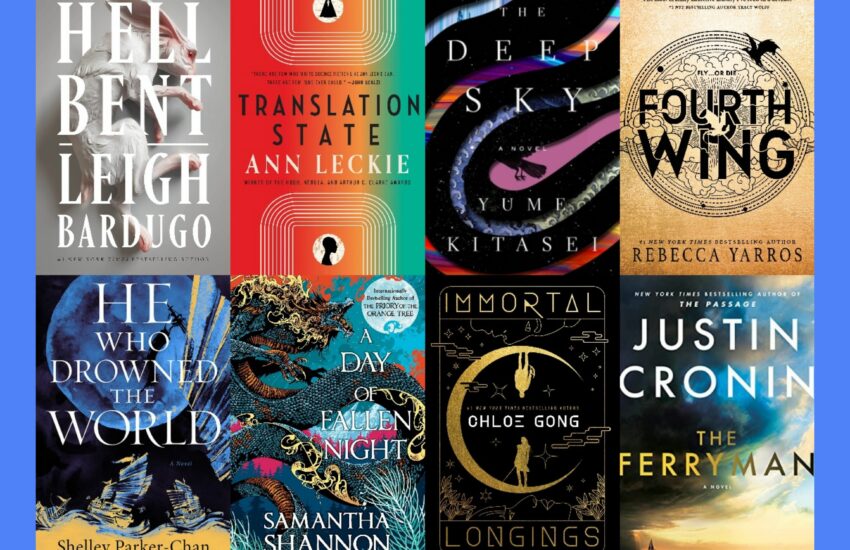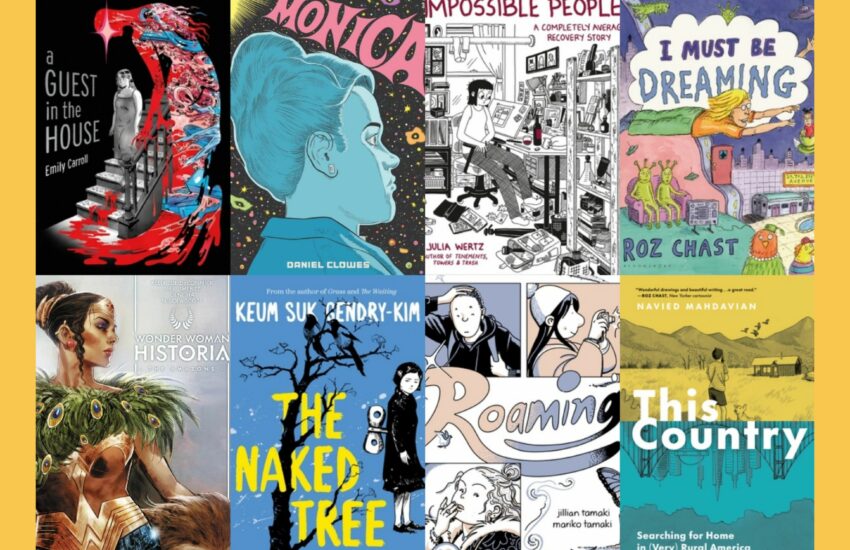The Best Books On Logic And Logical Thinking
“What are the best books about Logic?” We looked at 103 of the top Logic books, aggregating and ranking them so we could answer that very question!
The top 27 titles, all appearing on 2 or more “Best Logic” book lists, are ranked below by how many lists they appear on. The remaining 50+ titles, as well as the lists we used are in alphabetical order at the bottom of the page.
Happy Scrolling!
Top 27 Books About Logic & Logical Thinking
27 .) A Concise Introduction to Logic written by Patrick J. Hurley
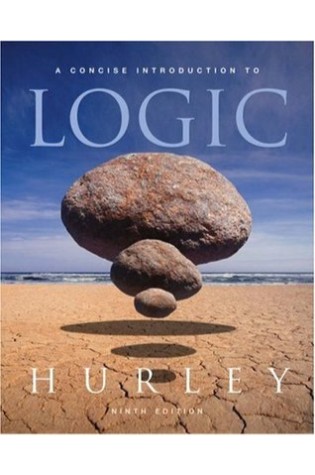
Lists It Appears On:
- Goodreads
- Multipotents
Unsurpassed for its clarity, conciseness, and comprehensiveness, Hurley’s market-leading A CONCISE INTRODUCTION TO LOGIC has established itself as the standard for introductory logic classes. Hailed in the first eight editions for an unwavering commitment to lucid, focused, reader-friendly presentations of logic’s basic topics, the latest edition also continues to expand upon Hurley’s tradition of technological excellence with the introduction of vMentor and iLrn Logic. These two technologies help you manage the workload of teaching logic by providing your students with a live, online logic tutoring service and you with an online system that automates homework and test grading.
26 .) Crimes Against Logic: Exposing the Bogus Arguments of Politicians, Priests, Journalists, and Other Serial Offenders written by Jamie Whyte
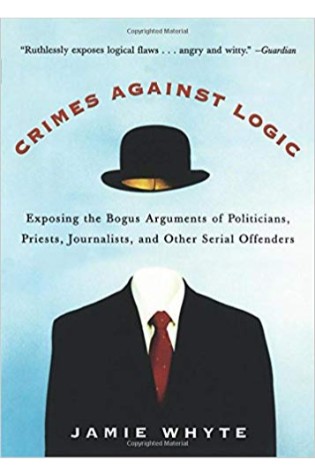
Lists It Appears On:
- Goodreads
- Multipotents
In Crimes Against Logic Whyte take us on a fast-paced, ruthlessly funny romp through the mulligan stew of can, folderol, and bogus logic served up in the media, at the office, and even in your own home. Applying his laserlike wit to dozens of timely examples, Whyte cuts through the haze of facts, figures, and double-talk and gets at the real truth behind what they’re telling us.
25 .) Critical Thinking Skills: Developing Effective Analysis and Argument written by Stella Cottrell
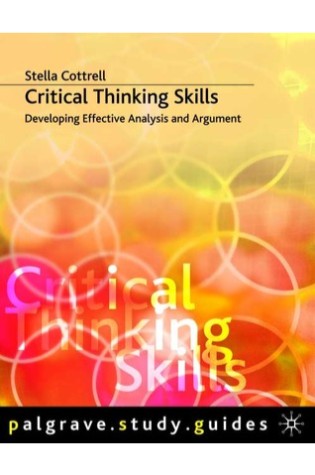
Lists It Appears On:
- Successtoro
- Why To Read
Critical Thinking Skills has taken the seemingly baffling art of analysis and broken it down into easy to understand blocks, with clear explanations, good examples, and plenty of activities to develop understanding at each stage. This easy to follow, step-by step guide to developing reasoning skills even applies the techniques to tasks such as reading, note-taking, and writing.
24 .) Critical Thinking: A Beginner’s Guide to Critical Thinking, Better Decision Making, and Problem Solving written by Jennifer Wilson
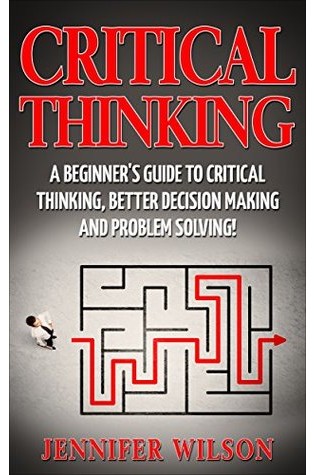
Lists It Appears On:
- Successtoro
- Up Journey
“Critical Thinking: A Beginner’s Guide To Critical Thinking, Better Decision Making and Problem Solving!” is a great introduction to the fundamental principles of critical thinking. It is a book that offers insightful tips, as well as steps that are easy to follow, in effectively solving problems. Amazingly, the tips provided are not geared towards solving only one type of problems. Instead, you can follow them to get solutions to a wide range of challenges. At the same time, the simple guidelines that the book outlines are not restricted for use by people of only one profession. On the contrary, they are applicable to all professions, and even other spheres of life. For example, businesspeople are bound to find the techniques of critical thinking described in the book very useful in solving business related problems, while politicians are likely to find the same techniques very handy. In actual fact, the lessons well taught in this book are useful to everyone who looks forward to seeking and finding solutions to simple as well as tough challenges. Once you have mastered the art of critical thinking and begun applying it, you will, very likely, marvel at how much of your precious resources you are capable of saving. You will also realize that you can streamline systems in a way that cuts down on wastage and inefficiencies. Besides these, kind of, formal advantages, you will love it when critical thinking begins to come to you as a matter of fact in your day-to-day life.
23 .) Gödel, Escher, Bach: An Eternal Golden Braid written by Douglas R. Hofstadter
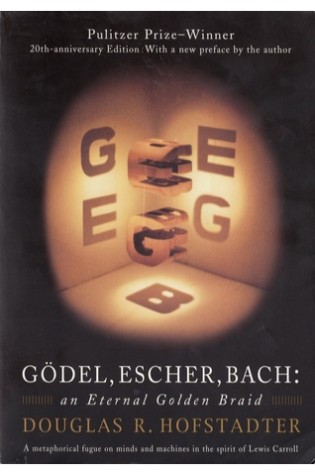
Lists It Appears On:
- Goodreads
- Multipotents
Douglas Hofstadter’s book is concerned directly with the nature of “maps” or links between formal systems. However, according to Hofstadter, the formal system that underlies all mental activity transcends the system that supports it. If life can grow out of the formal chemical substrate of the cell, if consciousness can emerge out of a formal system of firing neurons, then so too will computers attain human intelligence. Gödel, Escher, Bach is a wonderful exploration of fascinating ideas at the heart of cognitive science: meaning, reduction, recursion, and much more.
22 .) Gödel’s Proof written by Ernest Nagel and James R. Newman
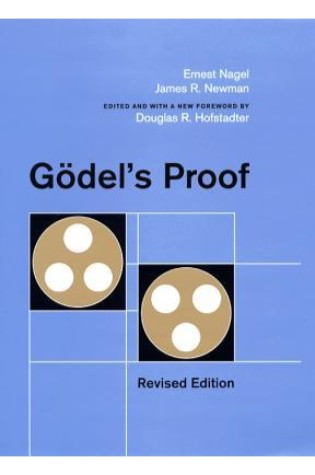
Lists It Appears On:
- Goodreads
- Multipotents
In 1931 Kurt Gödel published his fundamental paper, “On Formally Undecidable Propositions of Principia Mathematica and Related Systems.” This revolutionary paper challenged certain basic assumptions underlying much research in mathematics and logic. Gödel received public recognition of his work in 1951 when he was awarded the first Albert Einstein Award for achievement in the natural sciences–perhaps the highest award of its kind in the United States. The award committee described his work in mathematical logic as “one of the greatest contributions to the sciences in recent times.” However, few mathematicians of the time were equipped to understand the young scholar’s complex proof. Ernest Nagel and James Newman provide a readable and accessible explanation to both scholars and non-specialists of the main ideas and broad implications of Gödel’s discovery. It offers every educated person with a taste for logic and philosophy the chance to understand a previously difficult and inaccessible subject.
21 .) How Not to Be Wrong: The Power of Mathematical Thinking written by Jordan Ellenberg
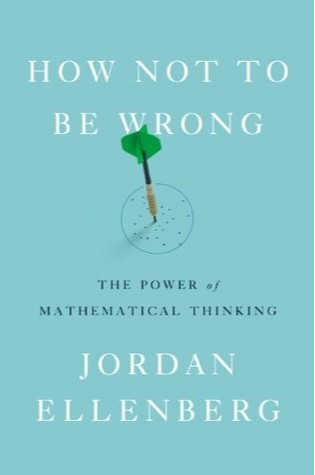
Lists It Appears On:
- Book Depository
- Multipotents
The Freakonomics of math—a math-world superstar unveils the hidden beauty and logic of the world and puts its power in our hands The math we learn in school can seem like a dull set of rules, laid down by the ancients and not to be questioned. In How Not to Be Wrong, Jordan Ellenberg shows us how terribly limiting this view is: Math isn’t confined to abstract incidents that never occur in real life, but rather touches everything we do—the whole world is shot through with it. Math allows us to see the hidden structures underneath the messy and chaotic surface of our world. It’s a science of not being wrong, hammered out by centuries of hard work and argument. Armed with the tools of mathematics, we can see through to the true meaning of information we take for granted: How early should you get to the airport? What does “public opinion” really represent? Why do tall parents have shorter children? Who really won Florida in 2000? And how likely are you, really, to develop cancer? How Not to Be Wrong presents the surprising revelations behind all of these questions and many more, using the mathematician’s method of analyzing life and exposing the hard-won insights of the academic community to the layman—minus the jargon. Ellenberg chases mathematical threads through a vast range of time and space, from the everyday to the cosmic, encountering, among other things, baseball, Reaganomics, daring lottery schemes, Voltaire, the replicability crisis in psychology, Italian Renaissance painting, artificial languages, the development of non-Euclidean geometry, the coming obesity apocalypse, Antonin Scalia’s views on crime and punishment, the psychology of slime molds, what Facebook can and can’t figure out about you, and the existence of God.
20 .) How to Argue & Win Every Time: At Home, At Work, In Court, Everywhere, Everyday written by Gerry Spence

Lists It Appears On:
- Multipotents
- Why To Read
Gerry Spence says, “We were born to make the winning argument, just as we were born to walk.” In his bestselling book, the preeminent American trial lawyer and grandmaster of argument tells us how.
19 .) How to Prove It: A Structured Approach written by Daniel J. Velleman
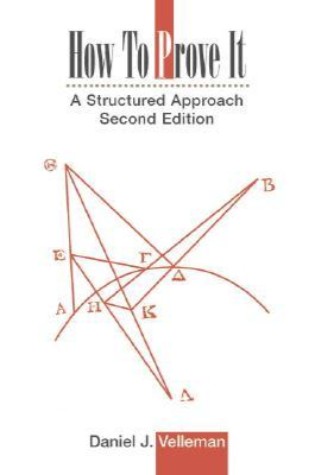
Lists It Appears On:
- Goodreads
- Multipotents
Geared to preparing students to make the transition from solving problems to proving theorems, this text teaches them the techniques needed to read and write proofs. The book begins with the basic concepts of logic and set theory, to familiarize students with the language of mathematics and how it is interpreted. These concepts are used as the basis for a step-by-step breakdown of the most important techniques used in constructing proofs. To help students construct their own proofs, this new edition contains over 200 new exercises, selected solutions, and an introduction to Proof Designer software.
18 .) How to Solve It: A New Aspect of Mathematical Method written by George Pólya
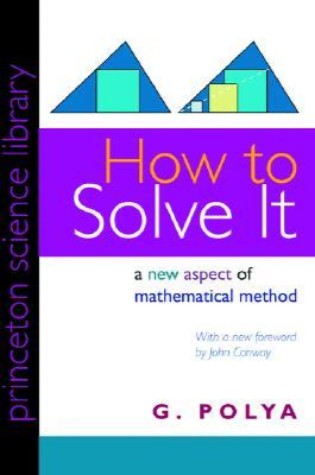
Lists It Appears On:
- Goodreads
- Multipotents
A perennial bestseller by eminent mathematician G. Polya, How to Solve It will show anyone in any field how to think straight. In lucid and appealing prose, Polya reveals how the mathematical method of demonstrating a proof or finding an unknown can be of help in attacking any problem that can be “reasoned” out–from building a bridge to winning a game of anagrams. Generations of readers have relished Polya’s deft–indeed, brilliant–instructions on stripping away irrelevancies and going straight to the heart of the problem.
17 .) Introducing Logic written by Dan Cryan
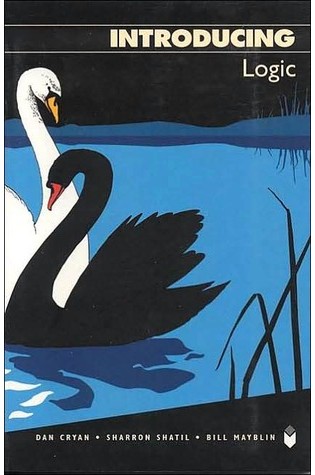
Lists It Appears On:
- Book Depository
- Goodreads
Introducing Logic makes this important discipline accessible to everyone using the series’ popular illustrated format. This easy-to-follow guide maps the historical development of logic, explains its symbols and methodology, traces its influence in a variety of disciplines and shows logic in action in our digital age.
16 .) Introduction to Logic written by Irving M. Copi, Carl Cohen, and Kenneth McMahon
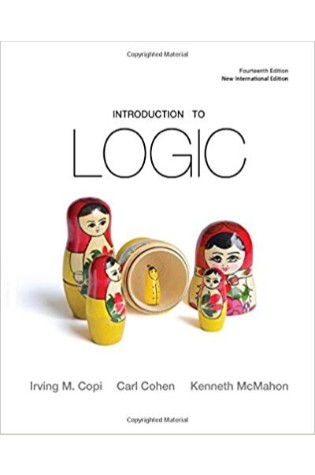
Lists It Appears On:
- Goodreads
- Multipotents
Introduction to Logic is a proven textbook that has been honed through the collaborative efforts of many scholars over the last five decades. Its scrupulous attention to detail and precision in exposition and explanation is matched by the greatest accuracy in all associated detail. In addition, it continues to capture student interest through its personalized human setting and current examples. The 14th Edition of Introduction to Logic, written by Copi, Cohen & McMahon, is dedicated to the many thousands of students and their teachers – at hundreds of universities in the United States and around the world – who have used its fundamental methods and techniques of correct reasoning in their everyday lives.
15 .) Language, Truth, and Logic written by A.J. Ayer
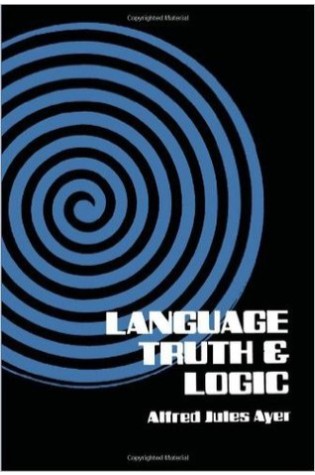
Lists It Appears On:
- Book Depository
- Goodreads
Classic introduction to objectives & methods of schools of empiricism & linguistic analysis, especially of the logical positivism derived from the Vienna Circle. Topics: elimination of metaphysics, function of philosophy, nature of philosophical analysis, the a priori, truth & probability, critique of ethics & theology, self & the common world etc. Introduction The elimination of metaphysics The function of philosophy The nature of philosophical analysis The a priori Truth & probability Critique of ethics & theology The self & the common world Solutions of outstanding philosophical disputes Index
14 .) Logically Fallacious: The Ultimate Collection of Over 300 Logical Fallacies written by Bo Bennett
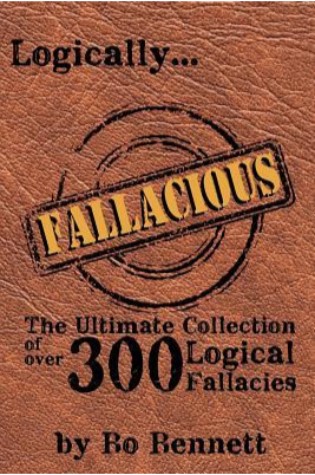
Lists It Appears On:
- Goodreads
- Multipotents
This book is a crash course in effective reasoning, meant to catapult you into a world where you start to see things how they really are, not how you think they are. The focus of this book is on logical fallacies, which loosely defined, are simply errors in reasoning. With the reading of each page, you can make significant improvements in the way you reason and make decisions.
13 .) Naming and Necessity written by Saul A. Kripke
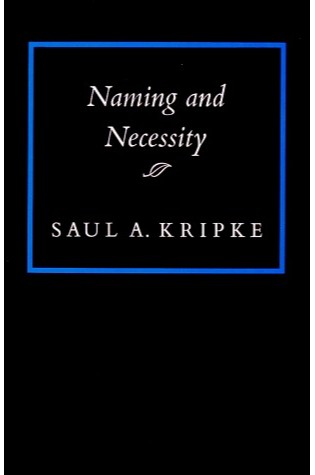
Lists It Appears On:
- Book Depository
- Goodreads
If there is such a thing as essential reading in metaphysics or in philosophy of language, this is it. Ever since the publication of its original version, “Naming and Necessity” has had great and increasing influence. It redirected philosophical attention to neglected questions of natural and metaphysical necessity and to the connections between these and theories of reference, in particular of naming, and of identity. From a critique of the dominant tendency to assimilate names to descriptions and more generally to treat their reference as a function of their Fregean sense, surprisingly deep and widespread consequences may be drawn. The largely discredited distinction between accidental and essential properties, both of individual things (including people) and of kinds of things, is revived. So is a consequent view of science as what seeks out the essences of natural kinds. Traditional objections to such views are dealt with by sharpening distinctions between epistemic and metaphysical necessity; in particular by the startling admission of necessary a posteriori truths. From these, in particular from identity statements using rigid designators whether of things or of kinds, further remarkable consequences are drawn for the natures of things, of people, and of kinds; strong objections follow, for example to identity versions of materialism as a theory of the mind.
12 .) Nonsense: Red Herrings, Straw Men and Sacred Cows: How We Abuse Logic in Our Everyday Language written by Robert J. Gula
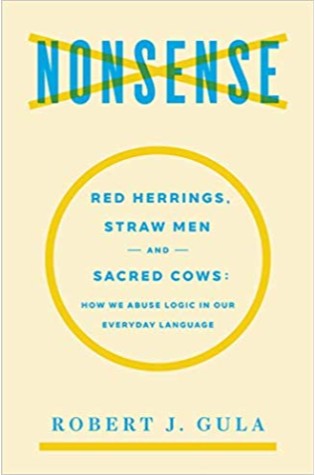
Lists It Appears On:
- Goodreads
- Multipotents
Nonsense is the best compilation and study of verbal logical fallacies available anywhere. It is a handbook of the myriad ways we go about being illogical―how we deceive others and ourselves, how we think and argue in ways that are disorderly, disorganized, or irrelevant. Nonsense is also a short course in nonmathematical logical thinking, especially important for students of philosophy and economics. A book of remarkable scholarship, Nonsense is unexpectedly relaxed, informal, and accessible.
11 .) Predictably Irrational, Revised and Expanded Edition: The Hidden Forces That Shape Our Decisions written by Dr. Dan Ariely
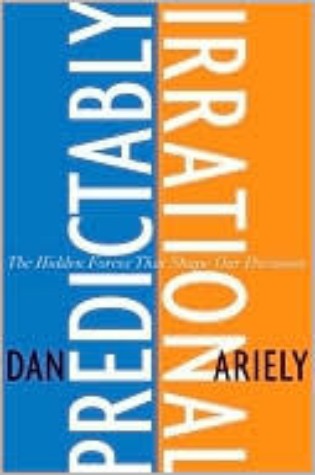
Lists It Appears On:
- Successtoro
- Up Journey
Why do our headaches persist after taking a one-cent aspirin but disappear when we take a 50-cent aspirin? Why does recalling the Ten Commandments reduce our tendency to lie, even when we couldn’t possibly be caught? Why do we splurge on a lavish meal but cut coupons to save twenty-five cents on a can of soup? Why do we go back for second helpings at the unlimited buffet, even when our stomachs are already full? And how did we ever start spending $4.15 on a cup of coffee when, just a few years ago, we used to pay less than a dollar? When it comes to making decisions in our lives, we think we’re in control. We think we’re making smart, rational choices. But are we? In a series of illuminating, often surprising experiments, MIT behavioral economist Dan Ariely refutes the common assumption that we behave in fundamentally rational ways. Blending everyday experience with groundbreaking research, Ariely explains how expectations, emotions, social norms, and other invisible, seemingly illogical forces skew our reasoning abilities. Not only do we make astonishingly simple mistakes every day, but we make the same “types” of mistakes, Ariely discovers. We consistently overpay, underestimate, and procrastinate. We fail to understand the profound effects of our emotions on what we want, and we overvalue what we already own. Yet these misguided behaviors are neither random nor senseless. They’re systematic and predictable–making us “predictably” irrational. From drinking coffee to losing weight, from buying a car to choosing a romantic partner, Ariely explains how to break through these systematic patterns of thought to make better decisions.
10 .) The Logic of Scientific Discovery written by Karl Popper
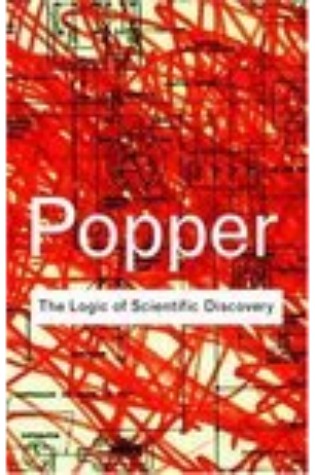
Lists It Appears On:
- Book Depository
- Goodreads
When first published in 1959, this book revolutionized contemporary thinking about science and knowledge. It remains the one of the most widely read books about science to come out of the twentieth century.
9 .) Think Smarter: Critical Thinking to Improve Problem-Solving and Decision-Making Skills written by Michael Kallet
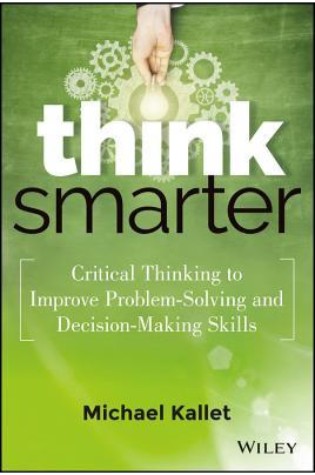
Lists It Appears On:
- Successtoro
- Up Journey
Train your brain for better decisions, problem solving, and innovation”Think Smarter: Critical Thinking to Improve Problem-Solving and Decision-Making Skills” is the comprehensive guide to training your brain to do more for you. Written by a critical thinking trainer and coach, the book presents a pragmatic set of tools to apply critical thinking techniques to everyday business issues. “Think Smarter” is filled with real world examples that demonstrate how the tools work in action, in addition to dozens of practice exercises applicable across industries and functions, “Think Smarter” is a versatile resource for individuals, managers, students, and corporate training programs. Thinking is the foundation of everything you do, but we rely largely on automatic thinking to process information, often resulting in misunderstandings and errors. Shifting over to critical thinking means thinking purposefully using a framework and toolset, enabling thought processes that lead to better decisions, faster problem solving, and creative innovation. “Think Smarter” provides clear, actionable steps toward improving your critical thinking skills, plus exercises that clarify complex concepts by putting theory into practice. Features include: A comprehensive critical thinking frameworkOver twenty-five “tools” to help you think more criticallyCritical thinking implementation for functions and activitiesExamples of the real-world use of each tool Learn what questions to ask, how to uncover the real problem to solve, and mistakes to avoid. Recognize assumptions your can rely on versus those without merit, and train your brain to tick through your mental toolbox to arrive at more innovative solutions. Critical thinking is the top skill on the wish list in the business world, and sharpening your ability can have profound affects throughout all facets of life.
8 .) Thinking, Fast and Slow written by Daniel Kahneman
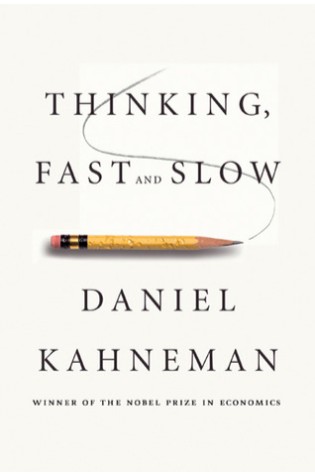
Lists It Appears On:
- Goodreads
- Up Journey
In the highly anticipated Thinking, Fast and Slow, Kahneman takes us on a groundbreaking tour of the mind and explains the two systems that drive the way we think. System 1 is fast, intuitive, and emotional; System 2 is slower, more deliberative, and more logical. Kahneman exposes the extraordinary capabilities—and also the faults and biases—of fast thinking, and reveals the pervasive influence of intuitive impressions on our thoughts and behavior. The impact of loss aversion and overconfidence on corporate strategies, the difficulties of predicting what will make us happy in the future, the challenges of properly framing risks at work and at home, the profound effect of cognitive biases on everything from playing the stock market to planning the next vacation—each of these can be understood only by knowing how the two systems work together to shape our judgments and decisions. Engaging the reader in a lively conversation about how we think, Kahneman reveals where we can and cannot trust our intuitions and how we can tap into the benefits of slow thinking. He offers practical and enlightening insights into how choices are made in both our business and our personal lives—and how we can use different techniques to guard against the mental glitches that often get us into trouble. Thinking, Fast and Slow will transform the way you think about thinking.
7 .) To Mock a Mockingbird and Other Logic Puzzles written by Raymond M. Smullyan
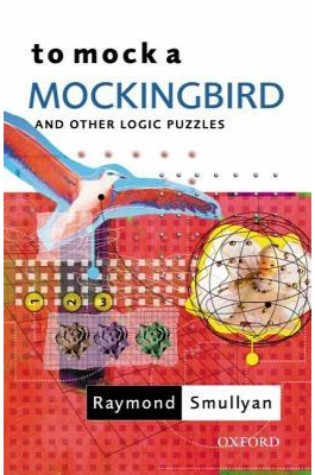
Lists It Appears On:
- Book Depository
- Goodreads
This is a challenging puzzle book covering logic, philosophy, psychology, artificial intelligence, computer science and mathematics. It contains many puzzles and their solutions and aims to attract many readers in an age where computer science, logic, and mathematics are becoming increasingly important and popular.
6 .) How to Win Every Argument: The Use and Abuse of Logic written by Madsen Pirie
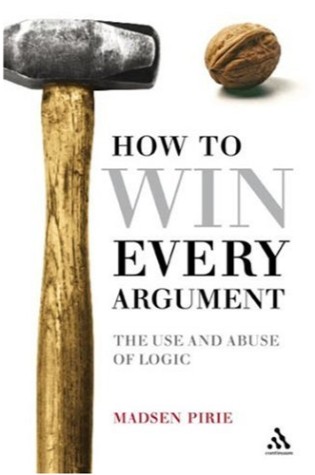
Lists It Appears On:
- Critical Thinker Academy
- Goodreads
- Multipotents
This is the book your friends will wish you hadn’t read, a witty and infectious guide to arguing successfully. Each entry deals with one fallacy, explaining what the fallacy is, giving and analysing an example, outlining when/where/why the particular fallacy tends to occur and finally showing how you can perpetrate the fallacy on other people in order to win an argument. Originally published to great acclaim in 1985 as “The Book of Fallacy”, this is a classic brought up-to-date for a whole new generation.
5 .) Logic: A Very Short Introduction written by Graham Priest
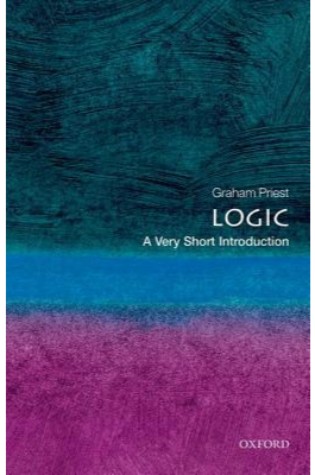
Lists It Appears On:
- Book Depository
- Goodreads
- Multipotents
Logic is often perceived as having little to do with the rest of philosophy, and even less to do with real life. In this lively and accessible introduction, Graham Priest shows how wrong this conception is. He explores the philosophical roots of the subject, explaining how modern formal logic deals with issues ranging from the existence of God and the reality of time to paradoxes of probability and decision theory. Along the way, the basics of formal logic are explained in simple, non-technical terms, showing that logic is a powerful and exciting part of modern philosophy. About the Series: Combining authority with wit, accessibility, and style, Very Short Introductions offer an introduction to some of life’s most interesting topics. Written by experts for the newcomer, they demonstrate the finest contemporary thinking about the central problems and issues in hundreds of key topics, from philosophy to Freud, quantum theory to Islam.
4 .) An Illustrated Book of Bad Arguments written by Ali Almossawi
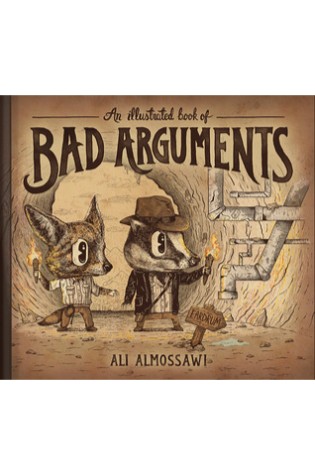
Lists It Appears On:
- Book Depository
- Goodreads
- Multipotents
- Why To Read
This book is aimed at newcomers to the field of logical reasoning, particularly those who, to borrow a phrase from Pascal, are so made that they understand best through visuals. I have selected a small set of common errors in reasoning and visualized them using memorable illustrations that are supplemented with lots of examples. The hope is that the reader will learn from these pages some of the most common pitfalls in arguments and be able to identify and avoid them in practice.
3 .) Being Logical: A Guide to Good Thinking written by Dennis Q. McInerny
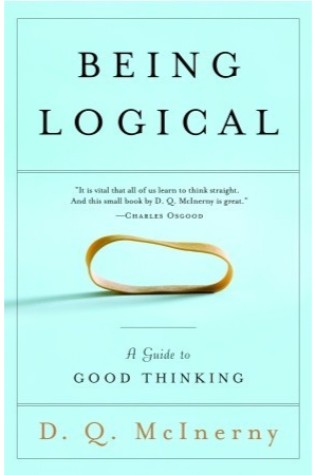
Lists It Appears On:
- Book Depository
- Goodreads
- Multipotents
- Up Journey
Whether regarded as a science, an art, or a skill–and it can properly be regarded as all three–logic is the basis of our ability to think, analyze, argue, and communicate. Indeed, logic goes to the very core of what we mean by human intelligence. In this concise, crisply readable book, distinguished professor D. Q. McInerny offers an indispensable guide to using logic to advantage in everyday life. Written explicitly for the layperson, McInerny’s Being Logical promises to take its place beside Strunk and White’s The Elements of Style as a classic of lucid, invaluable advice. As McInerny notes, logic is a deep, wide, and wonderfully varied field, with a bearing on every aspect of our intellectual life. A mastery of logic begins with an understanding of right reasoning–and encompasses a grasp of the close kinship between logical thought and logical expression, a knowledge of the basic terms of argument, and a familiarity with the pitfalls of illogical thinking. Accordingly, McInerny structures his book in a series of brief, penetrating chapters that build on one another to form a unified and coherent introduction to clear and effective reasoning. At the heart of the book is a brilliant consideration of argument–how an argument is founded and elaborated, how it differs from other forms of intellectual discourse, and how it critically embodies the elements of logic. McInerny teases out the subtleties and complexities of premises and conclusions, differentiates statements of fact from statements of value, and discusses the principles and uses of every major type of argument, from the syllogistic to the conditional. In addition, he provides an incisive look at illogical thinking and explains how to recognize and avoid the most common errors of logic.
2 .) Tractatus Logico-Philosophicus written by Ludwig Wittgenstein
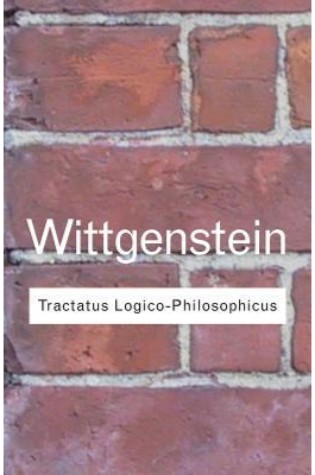
Lists It Appears On:
- Book Depository
- Book Depository
- Goodreads
- Multipotents
Perhaps the most important work of philosophy written in the twentieth century, Tractatus Logico-Philosophicus was the only philosophical work that Ludwig Wittgenstein published during his lifetime. Written in short, carefully numbered paragraphs of extreme brilliance, it captured the imagination of a generation of philosophers. For Wittgenstein, logic was something we use to conquer a reality which is in itself both elusive and unobtainable. He famously summarized the book in the following words: ‘What can be said at all can be said clearly; and what we cannot talk about we must pass over in silence.’ David Pears and Brian McGuinness received the highest praise for their meticulous translation.
1 .) A Rulebook for Arguments written by Anthony Weston
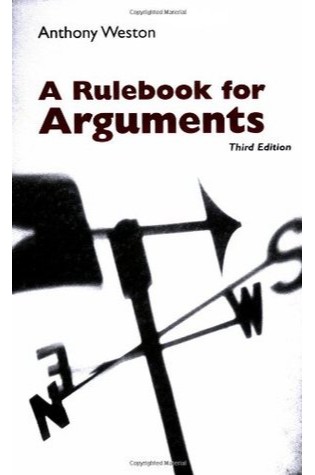
Lists It Appears On:
- Critical Thinker Academy
- Goodreads
- Multipotents
- Successtoro
- Up Journey
- Why To Read
Updated examples, streamlined text, and the chapter on definition reworked in a rule-based format strengthen this already strong volume. Readers familiar with the previous edition will find a text that retains all the features that make Rulebook ideally suited for use as a supplementary course book — including its modest price and compact size. Unlike most textbooks on argumentative writing, Rulebook is organised around specific rules, illustrated and explained soundly and briefly. It is not a textbook, but a rulebook, whose goal is to help students get on with writing a paper or assessing an argument.
The 50+ Additional Best Logic Books
| # | Books | Authors | Lists |
| 28 | 50 Challenging Problems in Probability with Solutions | UNC Analytics | |
| 29 | A First Sudoku Book | John Pazzelli | Cornerstone Confessions |
| 30 | A Mathematical Introduction to Logic | Herbert B. Enderton | Goodreads |
| 31 | A Modern Formal Logic Primer: Sentence Logic | Paul Teller | Goodreads |
| 32 | A More Beautiful Question: The Power of Inquiry to Spark Breakthrough Ideas | Warren Berger | Up Journey |
| 33 | A Passion for Mathematics | UNC Analytics | |
| 34 | Alice’s Adventures in Wonderland & Through the Looking-Glass | Lewis Carroll | Goodreads |
| 35 | An Introduction to Formal Logic | Peter Smith | Goodreads |
| 36 | An Introduction to Non-Classical Logic: From If to Is | Graham Priest | Goodreads |
| 37 | An Investigation of the Laws of Thought | George Boole | Goodreads |
| 38 | Asking the Right Questions: A Guide to Critical Thinking (11th Edition) | M. Neil Browne and Stuart M. Keeley | Successtoro |
| 39 | Attacking Faulty Reasoning: A Practical Guide to Fallacy-Free Arguments | T. Edward Damer | Goodreads |
| 40 | Book of Proof | Richard Hammack | Multipotents |
| 41 | Brain Power: Learn to Improve Your Thinking Skills | Karl Albrecht | Up Journey |
| 42 | Computability and Logic | George S. Boolos | Goodreads |
| 43 | Conjectures and Refutations | Book Depository | |
| 44 | Critical Thinking | Brooke Noel Moore and Richard Parker | Multipotents |
| 45 | Critical Thinking: Proven Strategies to Improve Decision Making Skills, Increase Intuition And Think Smarter | Simon Bradley and Nicole Price | Successtoro |
| 46 | Critique of Pure Reason | Immanuel Kant | Why To Read |
| 47 | Do You Think You’re Clever? | Book Depository | |
| 48 | Don’t Believe Everything You Think: The 6 Basic Mistakes We Make in Thinking | Thomas E. Kida | Up Journey |
| 49 | Fermat’s Last Theorem (a.k.a. Fermat’s Enigma) | UNC Analytics | |
| 50 | First-Order Logic | Raymond M. Smullyan | Goodreads |
| 51 | From a Logical Point of View: Nine Logico-Philosophical Essays | Willard Van Orman Quine | Goodreads |
| 52 | Hermeneutics: A Very Short Introduction | Book Depository | |
| 53 | How to Do Things with Words | Book Depository | |
| 54 | How to Make Sense of Any Mess: Information Architecture for Everybody | Abby Covert | Why To Read |
| 55 | How to Think About Weird Things: Critical Thinking for a New Age (7th Edition) | Theodore Schick and Lewis Vaughn | Successtoro |
| 56 | How to Win an Argument | Book Depository | |
| 57 | How We Know What Isn’t So | Book Depository | |
| 58 | Impossible Folding Puzzles and Other Mathematical Paradoxes | Gianni A. Sarcone and Marie-Jo Waeber | Cornerstone Confessions |
| 59 | Improve Your Digestion | Book Depository | |
| 60 | Introduction to Logic: and to the Methodology of Deductive Sciences | Alfred Tarski | Goodreads |
| 61 | Light on Yoga | Book Depository | |
| 62 | Logic | Book Depository | |
| 63 | Logic and Structure | Dirk van Dalen | Goodreads |
| 64 | Logic for Philosophy | Theodore Sider | Goodreads |
| 65 | Logic Made Easy: How to Know When Language Deceives You | Deborah J. Bennett | Goodreads |
| 66 | Logic: A God-Centered Approach to the Foundation of Western Thought | Vern Sheridan Poythress | Goodreads |
| 67 | Logic: An Introduction to Elementary Logic | Wilfrid Hodges | Goodreads |
| 68 | Logicomix: An Epic Search for Truth | Apostolos K. Doxiadis | Goodreads |
| 69 | Mastering Logical Fallacies: The Definitive Guide to Flawless Rhetoric and Bulletproof Logic | Michael Withey | Why To Read |
| 70 | Methods of Logic | Willard Van Orman Quine | Goodreads |
| 71 | Mind Twisters: Games, Puzzles, and More! | Charles and Juliet Snape | Cornerstone Confessions |
| 72 | Oxford Guide to Effective Argument and Critical Thinking | Book Depository | |
| 73 | Philosophy of Logic | Willard Van Orman Quine | Goodreads |
| 74 | Professor Stewart’s Cabinet of Mathematical Curiosities | UNC Analytics | |
| 75 | Proofs and Refutations: The Logic of Mathematical Discovery | Imre Lakatos | Goodreads |
| 76 | Socratic Logic | Peter Kreeft | Goodreads |
| 77 | Solve For Happy | Book Depository | |
| 78 | Straight and Crooked Thinking | Book Depository | |
| 79 | Thank You For Arguing: What Aristotle, Lincoln and Homer Simpson Can Teach Us About the Art of Persuasion | Jay Heinrichs | Critical Thinker Academy |
| 80 | The 5 Elements of Effective Thinking | Edward B. Burger | Successtoro |
| 81 | The Art of Logic | Book Depository | |
| 82 | The Art of Thinking Clearly | Rolf Dobelli | Up Journey |
| 83 | The Decision Book: 50 Models for Strategic Thinking | Mikael Krogerus, Roman Tschäppeler, Philip Earnhart, Jenny Piening | Up Journey |
| 84 | The Dream of Enlightenment | Book Depository | |
| 85 | The Dream of Reason | Book Depository | |
| 86 | The Fallacy Detective | Nathaniel Bluedorn | Goodreads |
| 87 | The Foundations of Arithmetic: A Logico-Mathematical Enquiry into the Concept of Number | Gottlob Frege | Goodreads |
| 88 | The Game Of Logic | Lewis Carroll | Goodreads |
| 89 | The Joy of X | UNC Analytics | |
| 90 | The Organized Mind: Thinking Straight in the Age of Information Overload | Daniel J. Levitin | Up Journey |
| 91 | The Pig That Wants to Be Eaten | Book Depository | |
| 92 | The Problems of Philosophy | Book Depository | |
| 93 | The Trivium: The Liberal Arts of Logic, Grammar, and Rhetoric | Miriam Joseph | Goodreads |
| 94 | The Ultimate Dot-To-Dot Book | Barbara Soloff Levy | Cornerstone Confessions |
| 95 | Thinking Fast and Slow | Daniel Kahneman | Successtoro |
| 96 | Thinking Skills | Book Depository | |
| 97 | Understanding Arguments: An Introduction to Informal Logic | Walter Sinnott-Armstrong | Goodreads |
| 98 | Wait, What?: And Life’s Other Essential Questions | James E. Ryan | Up Journey |
| 99 | Weaponized Lies: How to Think Critically in the Post-Truth Era | Daniel J. Levitin | Up Journey |
| 100 | What Is the Name of This Book? | Raymond M. Smullyan | Goodreads |
| 101 | With Good Reason: An Introduction to Informal Fallacies | S. Morris Engel | Goodreads |
| 102 | You Are Not So Smart: Why You Have Too Many Friends on Facebook, Why Your Memory is Mostly Fiction, and 46 Other Ways You’re Deluding Yourself | David McRaney | Critical Thinker Academy |
| 103 | You Are Now Less Dumb | Critical Thinker Academy |
9 Best Logic Book Sources/Lists
| Source | Article |
| Book Depository | Philosophy: Logic Books | Book Depository |
| Cornerstone Confessions | 4 Logic Books Your Kids Will Beg To Do (And Giveaway … |
| Critical Thinker Academy | Book Recommendations For New Critical Thinkers | The Critical Thinker |
| Goodreads | Popular Logic Books – Goodreads |
| Multipotents | 20 Best Logic Books For Beginners (Improve Reasoning NOW) | 2018 |
| Successtoro | 10 Books On Critical Thinking That Will Change Your Mindset |
| UNC Analytics | 12 Must Read Popular Maths & Logic Books (Part 1) – YOU CANalytics |
| Up Journey | The 14 Best Books on Critical Thinking to Read in 2018 – UpJourney |
| Why To Read | Logic Books Will Teach You How To Argue. – WhytoRead Books |

